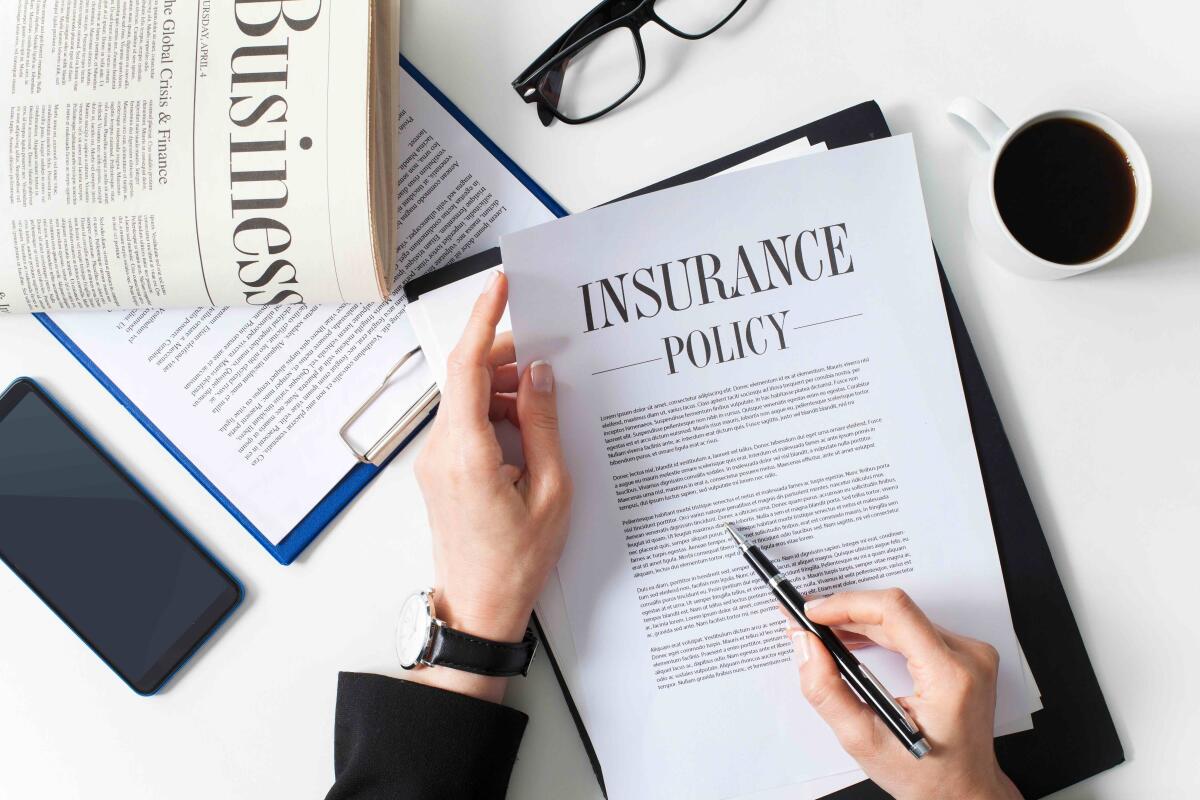Business Interruption Insurance: What It Covers and What It Doesn’t After a Wildfire

- Share via
Los Angeles business owners suffered heavy losses after the Palisades and Eaton fires. Some saw their buildings and inventory reduced to rubble, while others lost their customer bases as communities left their neighborhoods to seek refuge and recover.
If a business is still standing or the owners need to start all over, they may look to business interruption insurance to help cover their losses, but it doesn’t consistently deliver what they expect.
Here’s a breakdown on what business interruption insurance typically does and doesn’t cover, along with resources to help business owners figure out their options.
Resources for Small Businesses & Workers
How to Replace Business Licenses and Permits After a Wildfire
Lost business licenses or permits in the LA wildfires? Learn how to replace essential documents like DBAs, health permits & seller’s permits in this guide.
What Is Business Interruption Insurance?
Business interruption insurance, also known as business income coverage, reimburses a company for lost income and expenses when it’s forced to temporarily close due to physical damage from a covered peril or natural disasters like a wildfire. It is usually included in a commercial property or business owner’s policy, and the different types of covered incidents or perils are mentioned.
What It Typically Covers
- Lost profits: Based on historical income and revenue forecasts.
- Fixed expenses: Like rent, mortgage, utilities, and taxes.
- Employee payroll: To help keep and pay staff during recovery.
- Extra expenses: Such as temporary relocation or repairs.
Business insurance coverage typically begins after a 48- to 72-hour waiting period, meaning income lost during those first few days is not reimbursed. Once that period passes, eligible losses may be covered until the business is back to normal or the policy’s restoration period ends. According to the Insurance Information Institute, this restoration period often defaults to 30 days, but it can be extended up to 360 days through a policy add-on. That means you could be reimbursed for nearly a year’s worth of lost income, depending on your coverage.
Emergency Shelters & Housing Assistance
Red Cross Launches Second Wave of Financial Assistance for Wildfire Survivors
Red Cross launches 2nd phase of direct cash aid for Palisades/Eaton wildfire survivors in LA. Check eligibility & learn how to apply before the May 13 deadline.
Key Requirements for a Claim
Coverage is typically triggered only when all three of the following conditions are met:
- Direct physical loss or damage to the insured property
- The loss is caused by a covered incident, such as a wildfire.
- A necessary suspension of operations occurs (including slowdowns)
If your business is closed due to smoke infiltration or ash damage, coverage may apply, but if you closed only because of poor air quality or roadblocks without physical damage, you may be out of luck.
Civil Authority Coverage
Many policies include “civil authority” clauses, which cover income losses when government evacuation orders prevent business access, even without direct damage. This is particularly important for businesses near fire zones.
According to a study by the Los Angeles County Economic Development Corporation, 1,863 businesses were located within the Palisades and Eaton fire zones and generated $1.4 billion in annual sales.
What It Doesn’t Cover
- No physical damage, no coverage: Unless you have policy add-ons or additional coverage like contingent business interruption.
- Evacuations without damage: Civil authority coverage may help, but only if triggered by damage to nearby properties.
- Utility outages: Power or water losses may not be covered unless your policy includes specific coverage.
- Partial closures: If your business remained technically open, even if customer access was limited, your claim may be denied.
Business interruption insurance also usually excludes broken inventory or equipment that would otherwise be covered under your property insurance.
Wildfire Insurance & Legal Resources
Think Your Homeowners Insurance Payout Is Too Low? Here’s How to Push Back
Dispute a low home insurance settlement and learn how to get help with your claim if you want to rebuild or relocate after wildfire damage. This guide explains steps to fight for a fair payout, starting with an independent estimate.
Making a Claim
If you think you may be eligible for a claim, take the following steps:
- Request a full copy of your policy, not just a summary.
- Document the damage thoroughly with photos and written notes.
- Track your financial losses using past tax returns, sales reports, and payroll records.
- Keep receipts for any extra expenses related to cleanup or temporary operations.
- Consult a qualified professional, such as a public adjuster or licensed insurance advisor.
If You Need Help
Business interruption insurance can be a powerful tool for recovery, but it’s not automatic. In wildfire zones, especially, business owners must understand their policies in detail, advocate for their rights, and stay alert to changing business conditions and regulations.
Here are more resources for getting help with claims:
- California Department of Insurance (CDI)
Learn about your rights and get key tips for businesses navigating wildfire claims. - California Small Business Development Centers (SBDC)
These centers offer free business counseling, including help navigating insurance and financial recovery. Find your nearest center here. - Business Recovery Center
For one-on-one assistance, you can set an appointment at your local BRC, sponsored by the Small Business Administration for wildfire recovery. - Los Angeles County Economic Development Corporation (LAEDC)
The LAEDC offers a Business Assistance Program that provides free consulting for businesses of all sizes that need help with growth and recovery.
Business to Business
Connect with the Southern California business community—sign up for our weekly newsletters to stay informed.
You may occasionally receive promotional content from the Los Angeles Times.



